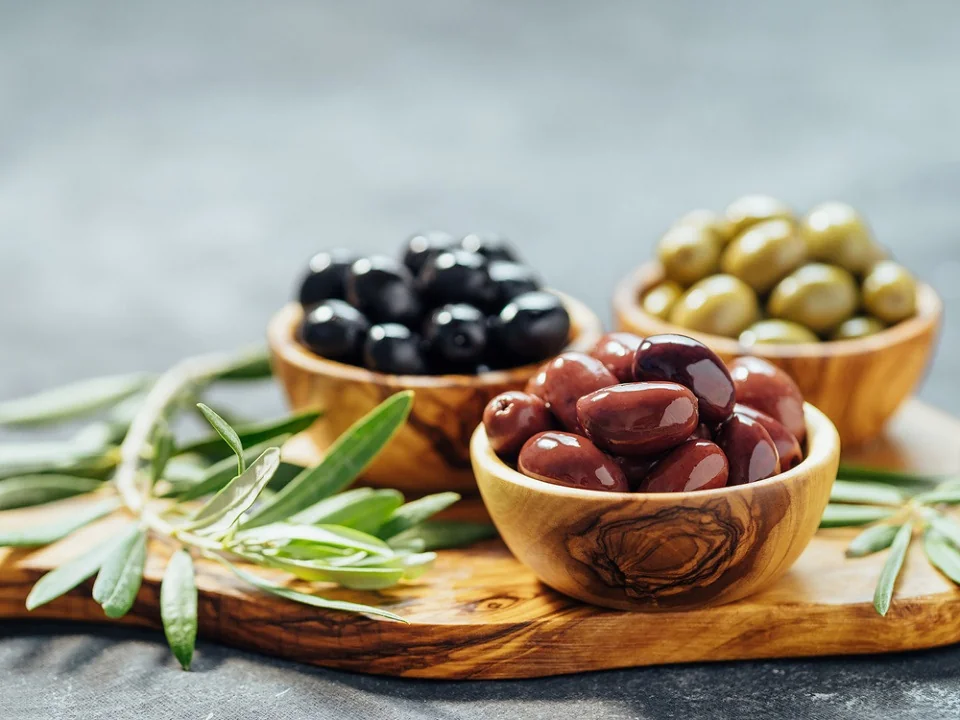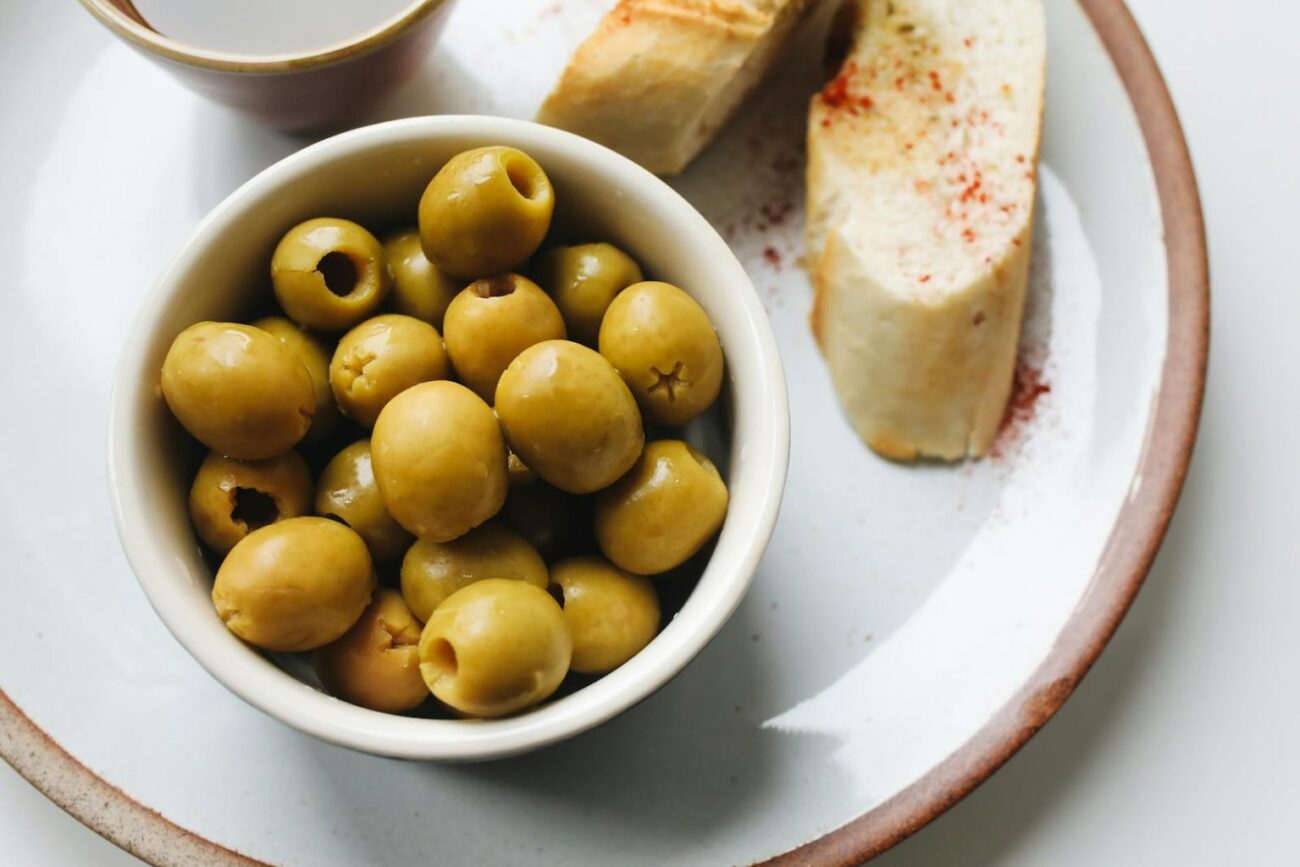Olives, those small, flavorful fruits often found adorning pizzas, salads, and charcuterie boards, are more than just a tasty addition to your meals. They are a nutritional powerhouse, packed with healthy fats, antioxidants, and essential vitamins and minerals. Whether you enjoy them as a snack, a garnish, or a key ingredient in dishes, olives offer a wide range of health benefits. However, like any food, they come with certain considerations.
In this blog post, we’ll explore the benefits of olives, how to incorporate them into your diet, and any potential contraindications to keep in mind.
What Are Olives?
Olives are the fruit of the olive tree (Olea europaea), native to the Mediterranean region. They are typically harvested when green (unripe) or black (ripe) and are often cured or fermented to reduce their natural bitterness. Olives are commonly pressed to produce olive oil, but they are also enjoyed whole in a variety of culinary applications.
Nutritional Profile of Olives
Olives are rich in healthy fats, particularly monounsaturated fats, and provide a variety of essential nutrients. Here’s a breakdown of their nutritional content per 100 grams (about 10-12 olives):
- Calories: 115
- Fat: 11 grams (mostly monounsaturated fat)
- Carbohydrates: 6 grams
- Fiber: 3 grams
- Protein: 1 gram
- Vitamin E: 1.6 mg (8% of the Daily Value)
- Iron: 3.3 mg (18% of the DV)
- Copper: 0.2 mg (22% of the DV)
- Sodium: 735 mg (varies depending on curing process)
Health Benefits of Olives
- Rich in Healthy Fats
Olives are an excellent source of monounsaturated fats, particularly oleic acid, which is known for its heart-healthy benefits. These fats help reduce bad cholesterol (LDL) levels while increasing good cholesterol (HDL), supporting cardiovascular health. - High in Antioxidants
Olives are packed with antioxidants, including vitamin E, polyphenols, and oleuropein. These compounds help combat oxidative stress, reduce inflammation, and protect against chronic diseases like heart disease and cancer. - Supports Heart Health
The combination of healthy fats, antioxidants, and anti-inflammatory properties in olives makes them a heart-healthy food. Regular consumption can help lower blood pressure, improve blood vessel function, and reduce the risk of heart disease. - Promotes Digestive Health
Olives are a good source of dietary fiber, which supports healthy digestion and prevents constipation. The healthy fats in olives also aid in the absorption of fat-soluble vitamins like A, D, E, and K. - May Aid in Weight Management
Despite being calorie-dense, olives can help with weight management due to their healthy fat and fiber content, which promote satiety and reduce overeating. - Supports Bone Health
Olives contain compounds like oleuropein and hydroxytyrosol, which have been shown to improve bone density and reduce the risk of osteoporosis. - Anti-Inflammatory Properties
The antioxidants in olives, particularly oleocanthal, have anti-inflammatory effects similar to ibuprofen. This can help reduce inflammation and alleviate symptoms of conditions like arthritis. - Boosts Skin Health
The vitamin E and antioxidants in olives help protect the skin from oxidative damage, keeping it healthy and youthful. Olive oil, derived from olives, is also widely used in skincare for its moisturizing and nourishing properties.
How to Incorporate Olives into Your Diet
Olives are incredibly versatile and can be enjoyed in a variety of ways. Here are some ideas for incorporating them into your meals:
- Snacks: Enjoy olives on their own as a quick and healthy snack.
- Salads: Add sliced or whole olives to salads for a burst of flavor and texture.
- Pizza and Pasta: Use olives as a topping for pizzas or mix them into pasta dishes.
- Tapenade: Blend olives with capers, garlic, and olive oil to make a delicious spread for bread or crackers.
- Stews and Casseroles: Add olives to stews, casseroles, or roasted vegetable dishes for extra flavor.
- Charcuterie Boards: Include olives as part of a cheese and charcuterie board for a Mediterranean touch.
Recommendations for Choosing and Storing Olives
- Types of Olives: There are many varieties of olives, including Kalamata, Manzanilla, and Castelvetrano. Each has a unique flavor profile, so experiment to find your favorite.
- Curing Methods: Olives are typically cured in brine, salt, or oil. Be mindful of the sodium content, especially if you’re watching your salt intake.
- Storage: Store olives in their brine or oil in an airtight container in the refrigerator. They can last for several weeks when properly stored.
Potential Contraindications and Precautions
While olives are generally safe and beneficial for most people, there are a few considerations to keep in mind:
- High Sodium Content: Olives are often cured in brine, which makes them high in sodium. If you have high blood pressure or are on a low-sodium diet, opt for low-sodium varieties or rinse them before eating.
- Calorie Density: Olives are calorie-dense due to their fat content. While healthy, they should be consumed in moderation if you’re watching your calorie intake.
- Allergies: Although rare, some individuals may have an allergy to olives or olive oil. If you experience symptoms like itching, swelling, or difficulty breathing after consuming olives, seek medical attention.
- Interactions with Medications: The high vitamin K content in olives can interfere with blood-thinning medications like warfarin. If you’re on such medications, consult your doctor before consuming large amounts of olives.

Olives are a small but mighty fruit that offers a wide range of health benefits. From supporting heart health and reducing inflammation to promoting healthy skin and digestion, olives are a nutritious and delicious addition to any diet. Whether you enjoy them as a snack, a garnish, or a key ingredient in your favorite dishes, olives are a versatile and flavorful way to boost your health.
So, the next time you reach for a handful of olives or drizzle olive oil over your salad, remember that you’re not just adding flavor—you’re nourishing your body with a wealth of nutrients.
Here’s to a healthier, more flavorful life with olives! 🫒✨

